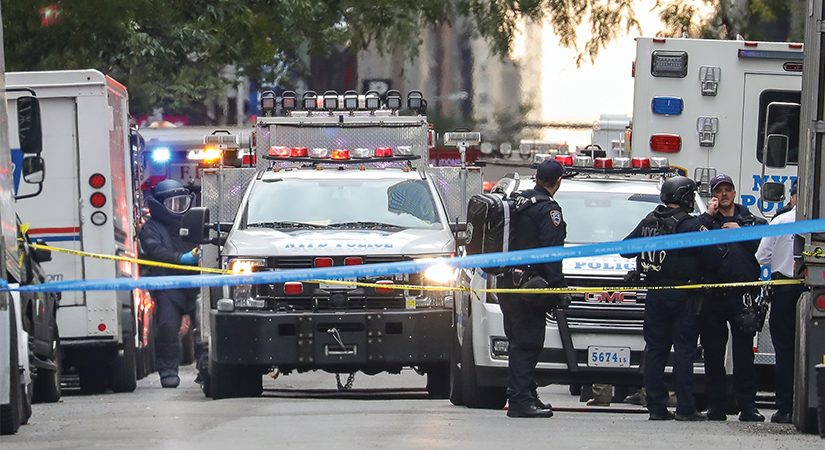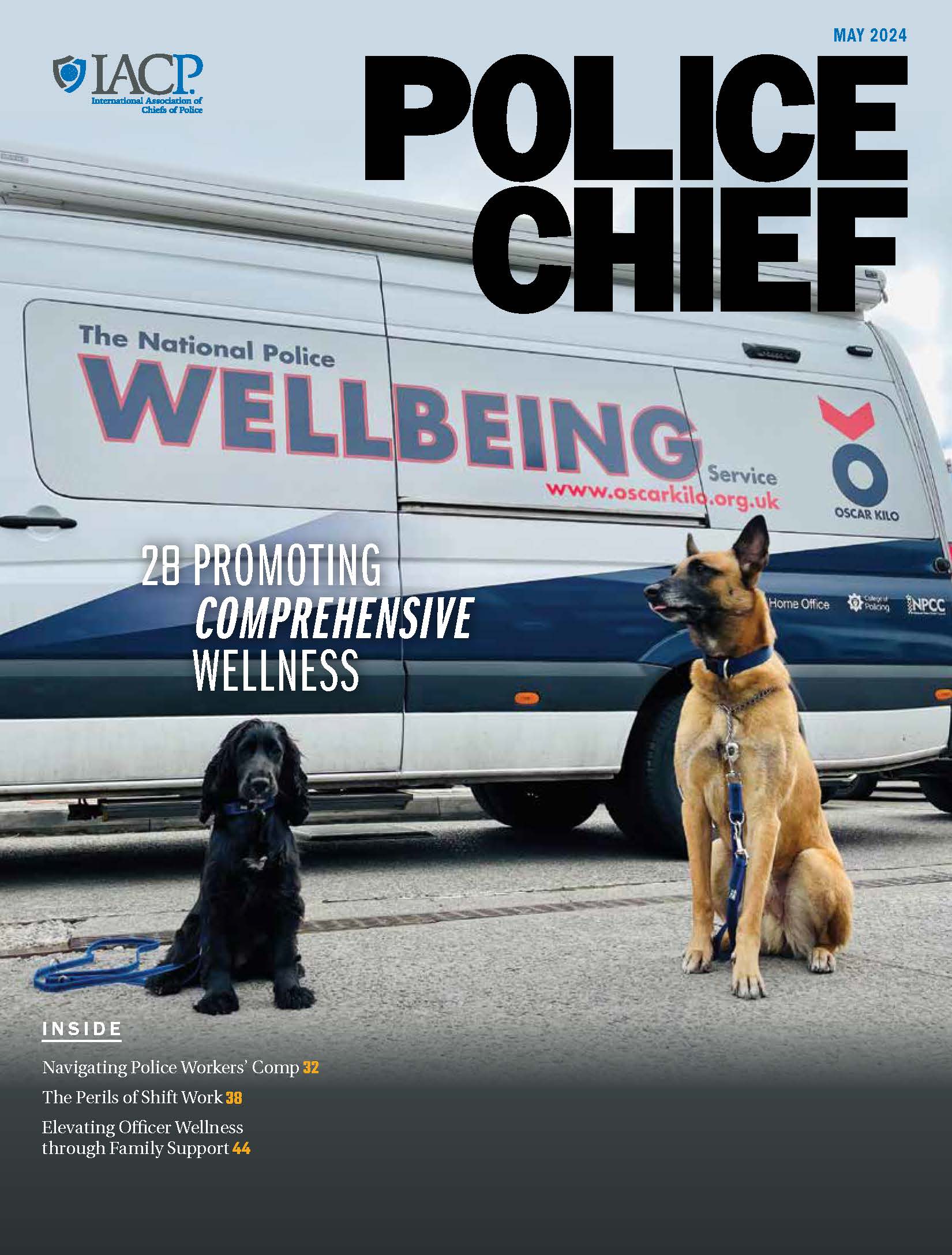In the Almanac of American History, historian Arthur Schlesinger Jr. wrote, “The genius of America lies in its capacity to forge a single nation from peoples of remarkably diverse racial, religious, and ethnic origins.”1
The United States is always on the move and changes often, always building anew. This is a way of life in the country. Some occasions create a monumental change, and the ability to challenge and change one’s country becomes very hard. For those who lived it, the attacks of September 11, 2001, will always have profound and lasting consequences, particularly in the United States.
For most people, those consequences have faded over the past 20 years, but for one group, they are always present. As the 20th anniversary approaches on September 11, 2021, it’s safe to say that no group had their expectations, equipment, and methods changed more drastically and dramatically than law enforcement. The attacks of 9/11 were unprecedented, not only in terms of terrorism against the United States, but also in the kind of change that the country and its people were about to experience.
A critical mission of law enforcement has always been to adapt and move with cultural and political shifts. These changes are not unprecedented. The United States changed after the influenza pandemic of 1918 and World War I. The country changed again after the stock market crashed in the late 1920s and throughout the 1930s, when anti-Semitism and racism were rampantly expressed. Another significant change came when the United States was attacked at Pearl Harbor and again after the United States invented and used a weapon of mass destruction, which killed hundreds of thousands of people in a nanosecond.
The country also changed during and after the Vietnam War and during the slow collapse of the economy with deindustrialization in the 1970s. The United States continued to change. So did law enforcement.
With the collapse of the Soviet Union in 1991, success in the Gulf War, and a generally robust economy, the United States grew bold and zealous. Many people who lived there started to take a lot—stability, prosperity, safety—for granted.
However, things were still changing, and off in the proverbial distance, a convergence was beginning to come into focus. There was a convergence of C4I (command, control, computers, communications, and Intelligence) technologies, commerce, realignment, and accelerated innovation.
This acceleration was the fuel of globalization. In the United States (and in other industrialized countries), police officers were tasked with integrating and adapting to new enforcement and surveillance techniques, tactics, and equipment to keep pace with those changes and enforce new requirements.
Activities abroad, like the 1993 battle of Mogadishu; the invasion of Haiti; the Bosnian War; the truck bomb attacks on embassies in Dar es Salaam, Tanzania, and Nairobi, Kenya; the cruise missile strikes of Al-Shifa pharmaceutical factory; and operations in Kosovo, were starting to have a negative impact within the United States.
Military operations other than war, the aggressive exercise of foreign policy, and the rapidity of globalization were taking center stage. All of the skirmishes, the impacts of the war on drugs, the mass incarceration of people after The Violent Crime Control and Law Enforcement Act of 1994, and an emerging impression of a prison industrial complex begin to rachet up tension within the United States.
The first World Trade Center bombing in 1993, the raid of the Branch Davidian compound, and the 1995 bombing of the Alfred P. Murrah Federal Building in Oklahoma City demonstrated an aggressive shift in domestic violence and heightened scrutiny on law enforcement. Law enforcement continued to be tasked with interdiction and prevention, but their role was changing as the country changed. These emergent challenges required new skills, expanded requirements, advanced detection and surveillance capabilities, and counterintelligence training. A new awareness of both domestic and international terrorism and criminal activity was changing the world. This was different terrorism than the leftist and sectarian terrorism experienced in Europe, Beirut, and the Middle East.
Shortly after that, Usama bin Laden declared war (a fatwa) on the United States.
The Impact of 9/11
On September 11, 2001, the convergence of all these factors compressed the world into a tiny place. The world saw, live, the terrorist attacks in Lower Manhattan; Arlington, Virginia; and Shanksville, Pennsylvania. People across the globe saw, again and again, the planes, the Twin Towers, the Pentagon, and the open field, and the events of that day changed everything. Whether by accident or design, everyone was now a suspect, and at the crossroad of this convergence was law enforcement.
Police officers and police departments were now front and center in the global War on Terror. Via a combination of the Patriot Act, luck, fate, and fear, police officers suddenly became domestic intelligence officers, operations officers, and case officers.
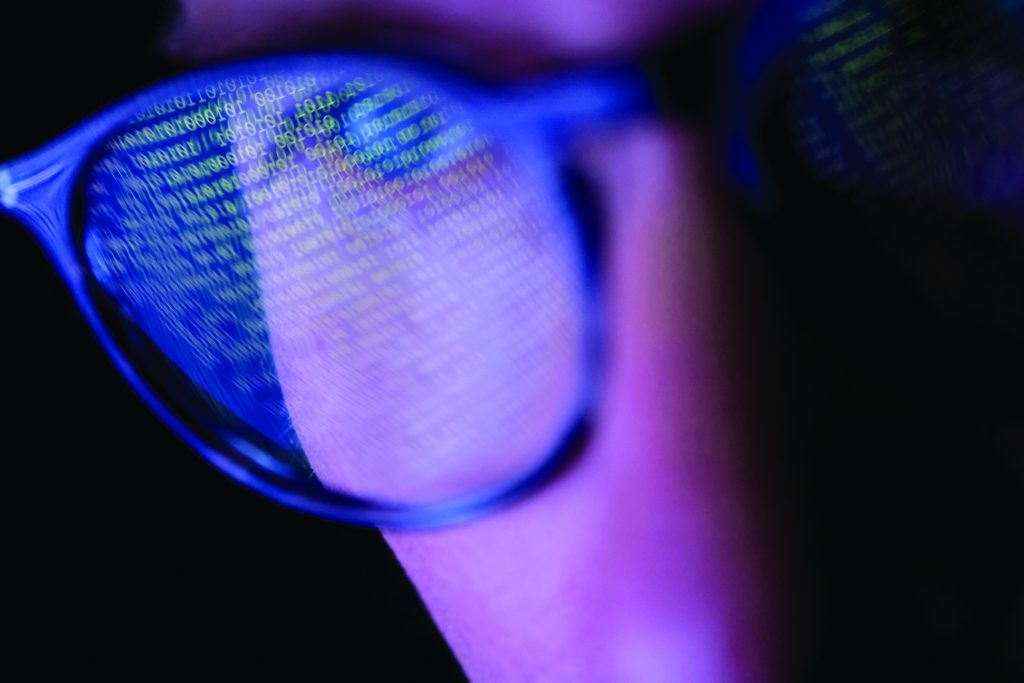
U.S. police officers were now both enforcing laws and becoming intelligence agents. They were tasked with analyzing computer code, seeking connections between U.S. residents and foreigners, unpacking banking records, monitoring events for posts throughout the world, training other police officers in Eastern Europe and Asia, identifying plots and threats, and chasing drug pirates up and down the U.S. coasts. Police officers became the foot soldiers in the domestic War on Terror.
Influence of Culture
Like every other culture, that of the United States has unique and specific peculiarities, including a historical anti-authoritarian individualism and paranoid behaviors. On 9/11, these cultural idiosyncrasies were exposed, exploited, and violated.
The United States has always had an “authority problem.” Before the country gained its independence, England was a 75-year “absent parent” that extracted wealth and taxes and provided little else. The seeds of the American revolution were based mainly on resentment of that absent authority.
The people of the U.S. colonies grew radically independent and focused on their business and expansion. Allowed by the absent ruler to self-police and pretty much self-organize, the colonists took great umbrage with regular and increasing enforcement of British acts and taxes, whether related to stamps, tea, or otherwise. The increased confiscation of weapons and involuntary quartering of British soldiers only fueled the growing anti-authoritarian disposition. The tremendous geographical dispersion and lengthy travel times to and from England only accelerated the dismissal of England’s authority.
In addition to this general state of affairs, each settlement along the East Coast had its particular authority issues. Massachusetts, with its religious distinction; New York, with its raw capitalism; and Virginia, with its agrarian ideals, all dismissed Britain. As settlers moved westward, boundaries were ignored, treaties were broken, and conflicts were settled at the end of a gun.
A unique kaleidoscope of cultural mores was beginning to create the idea of what would become the United States, and those cultural nuances are still part of the country’s ethos.
Combined with this “authority issue” is generational paranoia, based on the fear of internal and external threats. In the early days, the people of the United States feared the American Indians, the British, the French, and the Spanish. In the 20th Century, many in the United States feared the Germans and feared the Japanese American citizens to such an extent that they were interned in camps. This was followed by fear of Russia during the Cold War, and more recently, a fear of China.
Columbia historian Richard Hofstadter defined what he called “the paranoid style in American politics.”2
The paranoid spokesman sees the fate of conspiracy in apocalyptic terms—he traffics in the birth and death of whole worlds, whole political orders, whole systems of human values. He is always manning the barricades of civilization. He constantly lives at a turning point: it is now or never in organizing resistance to conspiracy. Time is forever running out.
Once combined with the unfortunate presence of xenophobia, the culture of the United States becomes increasingly complicated.
People worried about and continue to fear waves of immigrants. Political parties and social movements stood up to vehemently oppose the Germans, Irish, Italians, Jews, Eastern and Southern Europeans, Asians, and anyone from the Middle East or Central America. Today’s 24-hour news cycle and ideologies of the extremes prey on this paranoia and fear. Social media amplifies and accelerates the threat, disinformation, and half-truths—there are enemies at the gate! There is death and carnage everywhere! There are drug lords, warlords, and gang lords on every corner!
The time has come for us to recalibrate what the people of the United States actually have to fear.
In the famous words of U.S. President Franklin Delano Roosevelt, that is fear itself.3
Fear is a prison. Fear prohibits. Fear robs. Fear kills. Aristotle elaborated this in his Rhetoric: fear “is caused by whatever we feel has great power of destroying us, or of harming us in ways that tend to cause us great pain.”4
The United States has to reestablish its ability to change. Marianne Williamson wrote, “Our greatest fear is not that we are inadequate. Our deepest fear is that we are powerful beyond measure. It is our light, not our darkness, that most frighten us.”5
Culturally, the people of the United States see themselves as exceptional, dynamic, and infinitely capable. But, like all humans, they can also be superficial, fearful, shallow, ignorant, and selfish.
The United States has an authority problem, a fear problem, and an information problem—and it continues to throw police officers at these issues in the hope of garnering a solution.
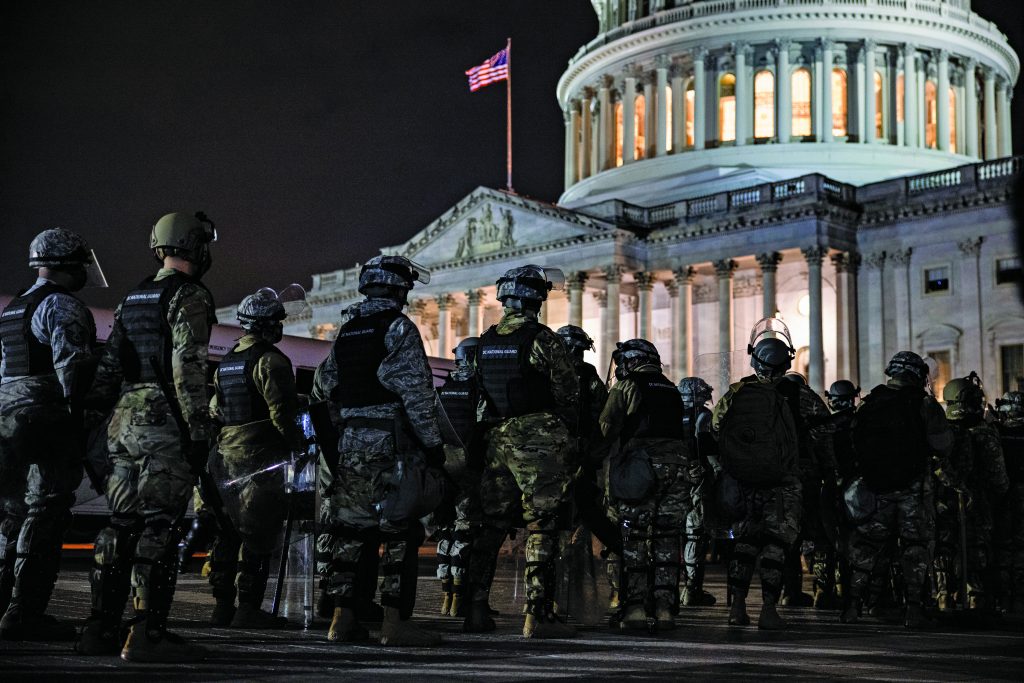
Polarization, propaganda, and politics drive the current narratives, and every day, someone’s agenda is fighting to gain traction. Within the context of those competing agendas, law enforcement in the United States is a very complex operation. Policing is steeped in history, lore, and tradition—both good and bad—all of which needs to be acknowledged in order to move forward
Imagine the compression of all this fear, anxiety, political angst, and economic hubris in a country that doesn’t acknowledge it, but instead hides it? This is the fundamental conundrum faced by U.S. law enforcement today.
Law Enforcement and the Terrorism Threat
Law enforcement’s mission has many parts. Primarily, the mission is to preserve order, enforce laws and regulations, and protect property. However, since 2001, police departments have been pushed into mission after mission—such as terrorism interdiction, homeland security, or school detention monitoring—because there is no one else to fulfill those roles.
Historically, countries and their law enforcement apparatus begin to restrict civil liberties in the quest to keep their countries safe and to capture terrorists. It’s not necessarily a function of desire but of expedience. The United States has also experienced some of this phenomenon. In many instances, the term “terrorist” and the concepts of terroristic threats and suspicious activity have a degree of subjective malleability. When these potentially subjective threats are combined with hyper-policing, hyper-surveillance, and hyper-concern, things can and often do get complicated.
Techniques, tactics, and procedures began to morph to meet the “terrorist threat” in the 1990s and 2000s, especially after 9/11. But, historically, there was far more criminal terrorist activity in the late 1960s and early 1970s than what we’re experiencing today. Bombings, kidnappings, and protests were far more prevalent. In the new threat environment, laws changed, and so did their prosecution. Three other things also took hold: projecting more aggressive force, focusing more on officer safety, and seizing more forfeited assets.
The Global War on Terror changed how the United States policed its citizens and equipped its police departments.
Along with asset forfeiture came the introduction of the Urban Areas Security Initiative (UASI) grants. The UASI Program assists high-threat, high-density urban areas in building and sustaining their capabilities to prevent, protect against, mitigate, respond to, and recover from acts of terrorism.6 Pursuing many new dollars available in UASI grants created or amplified threats, both real and imagined.
The Law Enforcement Support Office (LESO) LESO/1033 Program within the Department of Defense handles and distributes excess military property for law enforcement agencies. Through this program, since 1997, the Pentagon has distributed more than $7 billion in excess property. The vast majority of this is common noncontrolled items such as first aid kits, hand tools, computers, digital cameras, office equipment, and so forth; however, it also includes rifles, bayonets, night vision equipment, demilitarized planes and helicopters, and other excess military-style equipment to departments across the United States.7
Why?
The terrorist threat. Everywhere in the United States, police departments have been asked to expand their quest to serve and protect to include the fight against terrorism, which may have created more fear and anxiety than it solved.
That’s the thesis of the extreme. Cops go unchecked, rolling American citizens for anything and everything, and any failure to comply can result in death. Is this view accurate? Overwhelmingly, no, it’s not. Police officers, in many cases, honorably fulfill the roles demanded by the public and by their mission. Like the military and other social organizations and institutions, law enforcement is an amalgam and representation of culture and sociology.
Police officers are hyper-scrutinized, marginalized, and examined in the microscope of hindsight all the time, which are the ingredients for an “us vs. them” mentality. Many police departments do not receive enough training or continuing education, and often their academies and follow-on training requirements are hard to earn and unaffordable. So, training and education opportunities are reduced and removed from budgets due to costs. Additionally, there is a reasonable argument to be made that police officers are inadequately compensated for what they are charged to do.
“Police need to respect the public … and the U.S. public needs to understand that police officers, writ large, are not the enemy.”
Everything about entering the law enforcement field today is volatile. When cities and municipalities cut back on services, police, whether by order or circumstance, fill the void. Cops fill the roles of counselors, social workers, substitute parents, clinicians, EMTs, resource officers, babysitters, and the universal salve for a decaying society. They are the solution to growing social disorder. Superimposed on these societal challenges are the ever-increasing sophistication and increasing occurrences of a variety of crimes. Criminality has become more sophisticated, better armed, and more aggressive. More gangs, non-state actors, organized crime syndicates, white-collar criminals, gray markets, and black markets generate trillions of dollars within the criminal enterprise. There may be less crime, but fatal violence continues to target law enforcement officers.
Law enforcement continues to fill gaping holes in security and safety organizations with all these emergent trends, acting as counterterrorist case officers, analysts, and direct-action operators. Police calm and reassure the public that they are protected.
But law enforcement isn’t protected. The threat to the police is genuine, and the rate of line-of-duty deaths due to violence is rising.8 Cops are targeted and ambushed by the community members they are sworn to police and protect.
Naysayers, Monday morning quarterbacks, political opportunists, and politicians will dismiss, destroy, and dismantle a cop who had to make a life-and-death decision in less than half a second. In those compressed time situations, there are errors with consequences that last forever. It is naïve to assume there are no evil and dangerous people in the world. It’s even more naïve to consider removing funding, authority, and equipment from cops’ hands will somehow make their jobs easier and the population safer.
Again, nothing happens in a vacuum, and each escalation, mass shooting, criminal act, or terrorist act has unforeseen and cascading consequences.
Demand for Change
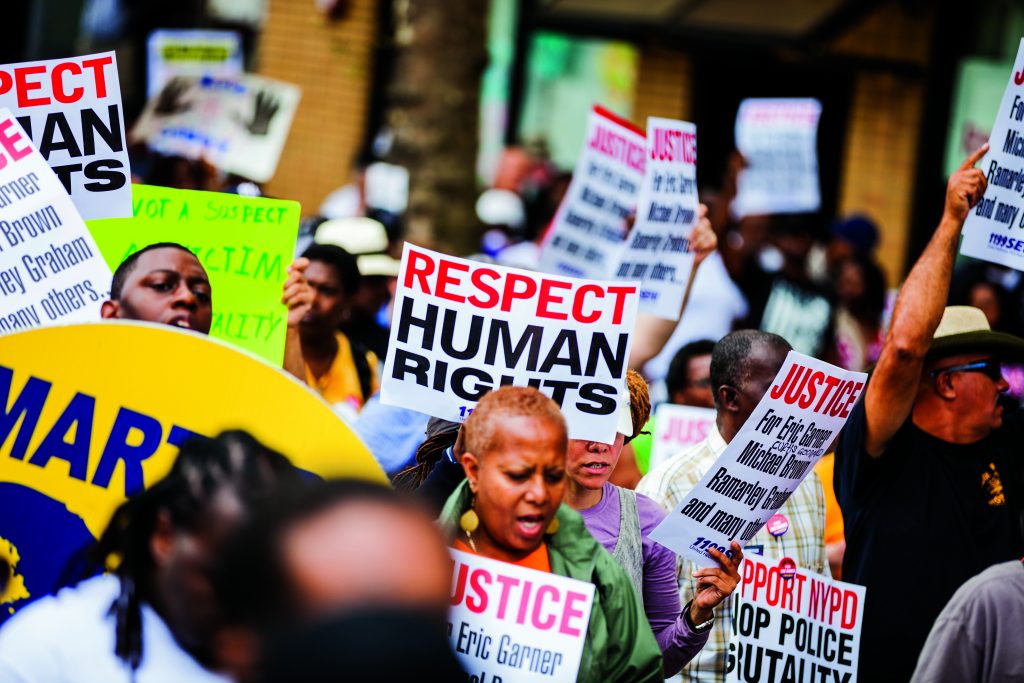
What is the expectation of law enforcement? Former Chief of Police for Dallas and current Superintendent of the Chicago Police David Brown said police in the United States are being asked “to do too much.”9 He is right. Yes, there are bad cops—but they don’t represent the totality of law enforcement. There are inadequate laws, and there are cultural hurdles that have to be overcome and changed. Police officers and departments are not the enemies, nor is the public they protect and serve.
The people of United States have asked law enforcement to reflect and change. The mirror is the first place to start—there are undoubtedly areas where policing can grow and adapt.
However, communities also have a role to play. Police officers have been asked to be everything from becoming mask enforcement officers and protest and riot containment specialists, to mental health professionals and conflict resolution counselors. Cops are criticized if they are seen as hyper-aggressive, yet elected officials and media outlets eviscerate them in the press when they do not prevent crime, looting, and mayhem.
But the more significant change is that the police need to respect the public and not treat them as the enemy, and the U.S. public needs to understand that police officers, writ large, are not the enemy.
U.S. law enforcement has been asked to detect, deter, and detain Islamist terrorists and domestic terrorists; maintain stability while the global market melted down; and sustain a presence during the pandemic and nationwide protests and riots.
And at the same time, they’re asked to ensure all CompStat inputs are correct and accurate. The public demands rapid response times, safe streets, no crime—and no enforcement. That’s a paradox.
Ownership and transparency are hallmark leadership traits that emotionally intelligent, mature organizations practice. The Global War on Terror created a convergence that drew law enforcement into a vortex of hypervigilance, hyper-action, and hyper-enforcement. There needs to be a re-evaluation of what is at stake. Fairness is a word in the dictionary. Respect is a behavior. Cops need to embrace their role in the current state of affairs and reimagine what policing can and should be.
It’s “we the people,” not “you people.”
“Man’s capacity for justice makes democracy possible,” the theologian and thinker Reinhold Niebuhr wrote in 1944. “But man’s inclination to injustice makes democracy necessary.”10
Policing and police officers will move forward. Law enforcement can and must change. Harboring smoldering resentments of the past will never move society forward. What will is ownership, investment, and embracing the possible.
The Reflected Abyss
When one stares into the abyss and fights monsters, one should avoid becoming a monster in the process. As Nietzsche noted, stare long enough into the abyss, and the abyss will gaze back.11
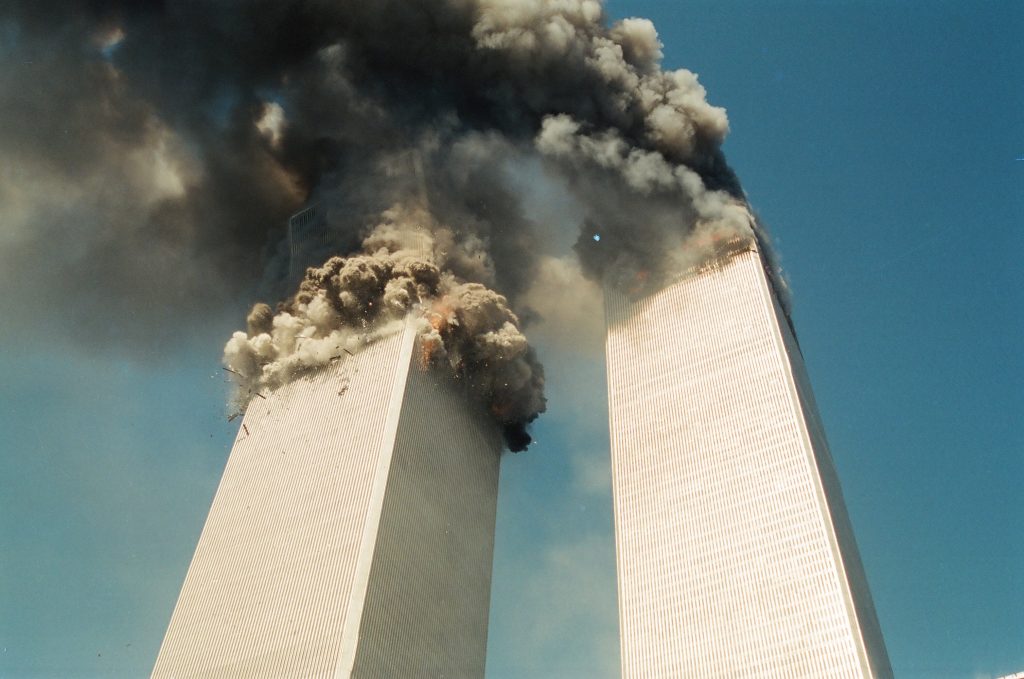 On September 11, 2001, the United States was attacked by monsters. It was a brief period of time, and people rallied to see the better angels of human nature within others. Then, society looked into the abyss and became hardened by circumstance and reality.
On September 11, 2001, the United States was attacked by monsters. It was a brief period of time, and people rallied to see the better angels of human nature within others. Then, society looked into the abyss and became hardened by circumstance and reality.
The United States now sees its reflected abyss. All parties, including law enforcement, need to own their misdeeds and triumphs in the same chalice. If the people of the United States believe they are indeed exceptional, then they need to be outstanding by deed and decree. In the end, the country, albeit flawed, was built on an idea that both liberty and freedom are possible.
As Warren Buffet said: “Never bet against America.”12
U.S. communities and leaders need to reestablish faith in one other and in police officers. Everyone must collectively carry and care for each other’s burdens and be the country of inspiration, not regret. To achieve this will require citizenship, grace, and forgiveness. The United States can and must do better.
Notes:
1Arthur M. Schlesinger (ed.), The Almanac of American History (Putnam Publishing Group, 1983).
2Richard Hofstadter, “The Paranoid Style in American Politics,” Harper’s Magazine (November 1964).
3Franklin Delano Roosevelt, “First Inaugural Address,” March 4, 1933.
4Aristotle, Rhetoric, trans. W. Rhys Roberts (The Internet Classics Archive by Daniel C. Stevenson, Web Atomics, 1994-2000), Book II, Chap. 5.
5Marianne Williamson, A Return to Love: Reflections on the Principles of “A Course in Miracles” (HarperOne, 1996).
6Homeland Security Grants, “Urban Areas Security Initiative (UASI) Program.”
7Defense Logistics Agency, “1033 Program FAQs. ”
8Ken Dilanian, “Thirty-Seven U.S. Police Officers Were Murdered in the First Five Months of 2021,” NBC News, June 16, 2021.
9Brady Dennis, Mark Berman, and Elahe Izadi, “Dallas Police Chief Says ‘We’re Asking Cops to Do Too Much in this Country,’” Washington Post, July 11, 2016.
10Reinhold Niebuhr, The Essential Reinhold Niebuhr: Selected Essays and Addresses, ed. Robert McAfee Brown (New Haven, CT: Yale University Press, 1987).
11Friedrich Nietzsche, Beyond Good and Evil: Prelude to a Philosophy of the Future (Liepzig, Germany: C. G. Naumann, 1886), Aphorism 146.
12Warren Buffet, Letter to Berkshire Hathaway Inc. Shareholders, February 27, 2021.
Please cite as
Daniel O’Connor, “Chasing Ghosts: Law Enforcement, Terrorism, and the Impact of 9/11,” Police Chief Online, September 8, 2021.


